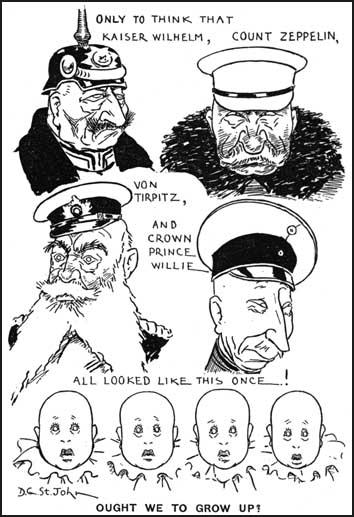Alfred von Tirpitz
Alfred von Tirpitz was born in Kustrin, Brandenburg, in 1849. He entered the Prussian Navy in 1865 and by 1896 was commander of the Asiatic Squadron. The following year Tirpitz was appointed State Secretary of the Imperial German Navy. In this post he was responsible for developing the German fleet until it was in a position where it could challenge the British Navy.
In 1911 Tirpitz became a Grand Admiral and on the outbreak of the First World War, was appointed Commander of the German Navy. Although Tirpitz had received full support from the Kaiser Wilhelm II, he felt he had lost the arms race and was pessimistic about defeating the British Navy. In the war Tirpitz was a strong advocate of unrestricted submarine warfare. In March 1916, Tirpitz resigned against continued restrictions on U-Boat activities against neutral countries.
After the war Tirpitz wrote his autobiography, My Memoirs (1919). He became the leader of the right-wing Fatherland Party and between 1924 and 1928 was a member of the Reichstag.
Alfred von Tirpitz died in 1930.

Primary Sources
(1) Alfred von Tirpitz, My Memoirs (1919)
Two lines of thought were emerging at that time (late 1890s): the tactical necessity for a battlefleet, if we were striving for sea-power and wanted to build ships to some purpose; and the political necessity of establishing a protecting navy for Germany's maritime interests which were growing at such an irresistible pace. The navy never seemed to me to be an end in itself but always a function of these maritime interests. Without sea-power Germany's position in the world resembled a mollusc without a shell. The flag had to follow trade, as other older states had realized long before it
began to dawn upon us.
The 'Open Door,' which could easily be closed, was to us what their broad plains and inexhaustible natural wealth were to the other Powers. This, combined with our hemmed-in and dangerous continental position, strengthened me in my conviction that no time was to be lost in beginning the attempt to constitute ourselves a sea-power. For only a fleet which represented alliance-value to other great Powers, in other words a competent battle fleet, could put into the hand of our diplomats the tool which, if used to good purpose, could supplement our power on land.
It was, and is, an illusion, however, to think that the English would have treated us any better, and have allowed our economic growth to have proceeded unchecked if we had had no fleet. They would have certainly told us to stop much sooner.
